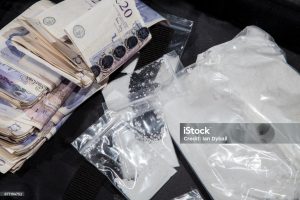 In Morrison v. National Australia Bank, 561 U.S. 247 (2010), the Supreme Court applied the presumption against extraterritoriality to securities fraud statutes. Again in Kiobel v. Royal Dutch Petroleum, 133 S.Ct. 1659 (2013), the Supreme Court applied the presumption and held the plaintiff lacked extraterritorial jurisdiction under the Alien Tort Statute. In 2016, however, in RJR Nabisco, Inc. v. European Community, 136 S.Ct. 2090 (2016), the Court held the Racketeer Influenced and Corrupt Organizations Act (RICO) could apply extraterritorially. But the Court severely limited the application of RICO to foreign conduct that violates “a predicate statute that manifests an unmistakable congressional intent to apply extraterritorially.” Still, the Court held RICO’s private right of action does not overcome the presumption. Thus, the Supreme Court has revived the presumption against extraterritoriality and reinforced a high burden to overtake the canon to apply a law extraterritorially.
In Morrison v. National Australia Bank, 561 U.S. 247 (2010), the Supreme Court applied the presumption against extraterritoriality to securities fraud statutes. Again in Kiobel v. Royal Dutch Petroleum, 133 S.Ct. 1659 (2013), the Supreme Court applied the presumption and held the plaintiff lacked extraterritorial jurisdiction under the Alien Tort Statute. In 2016, however, in RJR Nabisco, Inc. v. European Community, 136 S.Ct. 2090 (2016), the Court held the Racketeer Influenced and Corrupt Organizations Act (RICO) could apply extraterritorially. But the Court severely limited the application of RICO to foreign conduct that violates “a predicate statute that manifests an unmistakable congressional intent to apply extraterritorially.” Still, the Court held RICO’s private right of action does not overcome the presumption. Thus, the Supreme Court has revived the presumption against extraterritoriality and reinforced a high burden to overtake the canon to apply a law extraterritorially.
Under 959(c)(2) cases, a member of a drug conspiracy who are actually on board the aircraft have had their convictions upheld. See United States v. Epskamp F.3d 154 (2nd. Cir. 2016) (conspirators on board aircraft with cocaine on runway); United States v. Knowles, 197 F. Supp. 3d 143 (D.D.C. 2016), later affirmed by United States v. Thompson 921 F.3d 263 (D.C. Cir. 2019) (pilot and primary trafficker arrested in Haiti when US-registered aircraft was detained); United States v. Bodye, 172 F. Supp.3d 15 (D.C. Cir. 2016) (conspirators actually flew cocaine on US-registered planes); United States v. Lawrence, 727 F.3d 386 (5th Cir. 2019) (United States citizen defendants personally transported drugs on commercial airplanes from South America to United Kingdom); United States v. Rojas, 812 F.3d 382 (5th Cir. 2016) (one defendant piloted plane with 600 kilograms of cocaine).
 Sherman & Plano, TX Criminal Defense Lawyer Blog
Sherman & Plano, TX Criminal Defense Lawyer Blog



 However, there is a “longstanding principle of American law that legislation of Congress, unless a contrary intent appears, is meant to apply only within the territorial jurisdiction of the United States.”
However, there is a “longstanding principle of American law that legislation of Congress, unless a contrary intent appears, is meant to apply only within the territorial jurisdiction of the United States.”  I was having a few flashbacks to civil procedure class in a recent Federal extradition case recently. In law school, we had to learn the International Shoe standard of “minimum contacts which do not disturb traditional notions of fair play and substantial justice” according to International Shoe, whereby a state in America obtains jurisdiction over a citizen of another American state. Like trial lawyers, the United States wants its jurisdiction to spread far and wide. It is a principal of Admiralty law that the United States has jurisdiction oceanwide. Congress has also passed several laws to extend Federal criminal law jurisdiction as broadly as possible around the world.
I was having a few flashbacks to civil procedure class in a recent Federal extradition case recently. In law school, we had to learn the International Shoe standard of “minimum contacts which do not disturb traditional notions of fair play and substantial justice” according to International Shoe, whereby a state in America obtains jurisdiction over a citizen of another American state. Like trial lawyers, the United States wants its jurisdiction to spread far and wide. It is a principal of Admiralty law that the United States has jurisdiction oceanwide. Congress has also passed several laws to extend Federal criminal law jurisdiction as broadly as possible around the world. However, Texas allows the admissibility of medical laboratory blood that is drawn and tested at hospitals using indirect enzyme tests to be admissible in a driving while intoxicated case. This is despite the fact that the testing is a much less reliable enzyme test through a chemical reaction that is not testing only ethanol quantitatively or forensically. Normally, only blood plasma is tested, not whole blood, even though the driving while intoxicated statute says whole blood. Thus, a conversion formula is used even though each person’s plasma ratio is different.
However, Texas allows the admissibility of medical laboratory blood that is drawn and tested at hospitals using indirect enzyme tests to be admissible in a driving while intoxicated case. This is despite the fact that the testing is a much less reliable enzyme test through a chemical reaction that is not testing only ethanol quantitatively or forensically. Normally, only blood plasma is tested, not whole blood, even though the driving while intoxicated statute says whole blood. Thus, a conversion formula is used even though each person’s plasma ratio is different. I saw a Nick Saban quote online that addresses that there are few choices in life when we want to succeed. There are not many ways to do things the right way, usually only one way works. Coach Saban said “[w]e have a younger generation that isn’t told no or told exactly how to do it. As a consequence, many young people have this illusion they can do what they want. The fact of the matter is that if you want to be good, you really don’t have a lot of choices. It takes what it takes. You have to do what you have to do to be successful.”
I saw a Nick Saban quote online that addresses that there are few choices in life when we want to succeed. There are not many ways to do things the right way, usually only one way works. Coach Saban said “[w]e have a younger generation that isn’t told no or told exactly how to do it. As a consequence, many young people have this illusion they can do what they want. The fact of the matter is that if you want to be good, you really don’t have a lot of choices. It takes what it takes. You have to do what you have to do to be successful.”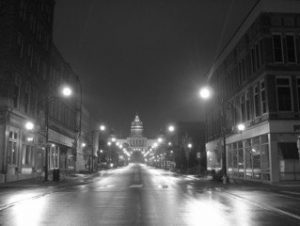 But, a defendant like Dr. Kavanaugh might offer evidence of good character in general as a defense, which can be a defense in itself. United States Court of Appeals for the Fifth Circuit Pattern Jury Charge 1.09 explains that
But, a defendant like Dr. Kavanaugh might offer evidence of good character in general as a defense, which can be a defense in itself. United States Court of Appeals for the Fifth Circuit Pattern Jury Charge 1.09 explains that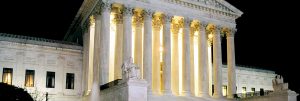 On direct examination, neither party can testify as to specific instances of misconduct to show truthfulness or untruthfulness. However, 608(b) states “…[b]ut the court may, on cross-examination, allow them to be inquired into if they are probative of the character for truthfulness or untruthfulness of: (1) the witness; or (2) another witness whose character the witness being cross-examined has testified about.” Specific instances of untruthfulness do not appear to be a major piece of evidence yet, but Kavanaugh’s opponents have claimed that he has lied under oath several times so far. If they were able to prove it extrinsically, they could potentially do so on cross-examination of him.
On direct examination, neither party can testify as to specific instances of misconduct to show truthfulness or untruthfulness. However, 608(b) states “…[b]ut the court may, on cross-examination, allow them to be inquired into if they are probative of the character for truthfulness or untruthfulness of: (1) the witness; or (2) another witness whose character the witness being cross-examined has testified about.” Specific instances of untruthfulness do not appear to be a major piece of evidence yet, but Kavanaugh’s opponents have claimed that he has lied under oath several times so far. If they were able to prove it extrinsically, they could potentially do so on cross-examination of him.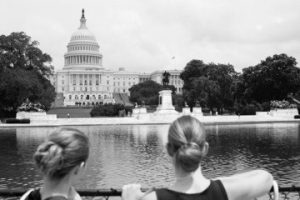 Here, we are dealing with a 35 year-old allegation of sexual misconduct for which no physical evidence would be present due to the age of the case and the nature of the allegation. Additionally, Kavanaugh has not stated that he and Ford engaged in criminal activity, so (B) is out. (C) is interesting as a catchall of “constitutional” admissibility. The only way this would normally come in is as “alternative perpetrator.” evidence. If Kavanaugh attempts to say that third party did the act Ford alleges, and could provide a foundation for the evidence, this sexual conduct could become admissible. But, some Courts have said that this is normally only relevant when identity is an issue. Kavanaugh could argue that intoxication and history make his identity an issue, but his primary defense of fabrication would be confused. So, this wouldn’t be a likely course.
Here, we are dealing with a 35 year-old allegation of sexual misconduct for which no physical evidence would be present due to the age of the case and the nature of the allegation. Additionally, Kavanaugh has not stated that he and Ford engaged in criminal activity, so (B) is out. (C) is interesting as a catchall of “constitutional” admissibility. The only way this would normally come in is as “alternative perpetrator.” evidence. If Kavanaugh attempts to say that third party did the act Ford alleges, and could provide a foundation for the evidence, this sexual conduct could become admissible. But, some Courts have said that this is normally only relevant when identity is an issue. Kavanaugh could argue that intoxication and history make his identity an issue, but his primary defense of fabrication would be confused. So, this wouldn’t be a likely course. Rule 613(b) states that “(b) …[e]xtrinsic evidence of a witness’s prior inconsistent statement is admissible only if the witness is given an opportunity to explain or deny the statement and an adverse party is given an opportunity to examine the witness about it, or if justice so requires…” Thus, the therapist can be called and his notes admitted into evidence to show that Ford made a prior inconsistent statement to him. In he-said/she-said cases regarding adults, such inconsistencies are usually very damaging. I believe this line of attack would be the strongest that Judge Kavanaugh could present.
Rule 613(b) states that “(b) …[e]xtrinsic evidence of a witness’s prior inconsistent statement is admissible only if the witness is given an opportunity to explain or deny the statement and an adverse party is given an opportunity to examine the witness about it, or if justice so requires…” Thus, the therapist can be called and his notes admitted into evidence to show that Ford made a prior inconsistent statement to him. In he-said/she-said cases regarding adults, such inconsistencies are usually very damaging. I believe this line of attack would be the strongest that Judge Kavanaugh could present.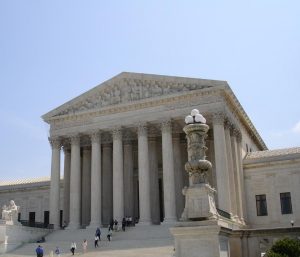 The central piece of evidence in this case is Professor Ford’s testimony. She has previously discussed her experience with a therapist, whose notes are different from her recent statements. So, on cross examination, assuming she testifies similar to her recent statements, she would be confronted with the contradictions in her previous statements, if any, with her therapist. From my reading of the news articles, her therapist apparently wrote notes that she claimed there were four people in the room, and one male pulled Judge Kavanaugh off of her. However, her recent statements are that there were two males in the room and she personally escaped after they all rolled off the bed to the ground.
The central piece of evidence in this case is Professor Ford’s testimony. She has previously discussed her experience with a therapist, whose notes are different from her recent statements. So, on cross examination, assuming she testifies similar to her recent statements, she would be confronted with the contradictions in her previous statements, if any, with her therapist. From my reading of the news articles, her therapist apparently wrote notes that she claimed there were four people in the room, and one male pulled Judge Kavanaugh off of her. However, her recent statements are that there were two males in the room and she personally escaped after they all rolled off the bed to the ground.